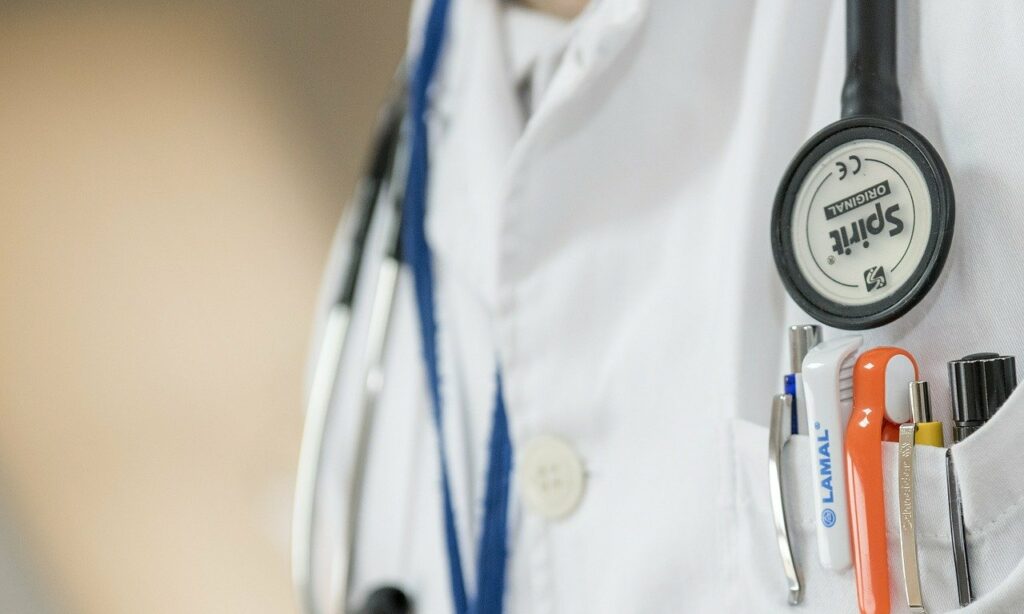Most premed students stress out about the strength and weaknesses question. It isn’t natural to talk about your strength and weaknesses, so talking about it in a medical school interview without sounding rehearsed is tough. But don’t worry, it’s easier than you think.
When talking about your strengths and weaknesses during a medical school interview, the key is to be authentic. Most likely, you will have some great quality about yourself that is a clear strength, but this quality can also be your weakness when uncontrolled. Being able to reflect on how your qualities can be a fault at times will demonstrate to medical schools that you are aware of yourself and always looking to improve.
I know it can be difficult to come up with that exact strength and weakness, so keep reading for advice on how to articulate it.
What Is A Good Weakness To Talk About In A Medical School Interview?

In order to answer this question, let’s first understand why a medical school interviewer would ask it.
When interviewers are asking this question they are looking at 3 different factors:
- Reflection: The question, “What Is Your Greatest Weakness” is asked in order to see that you can articulate faults that you need to work on in order to be a better caregiver. They want students that are able to reflect on their shortcomings instead of blaming everything that goes wrong on external factors.
- Self Improvement: Medicine is all about being a life longer learner. This means, you need to be constantly improving your knowledge and abilities to treat patients. Demonstrating you understand your weaknesses and how to work on them is important.
- Communication: Interviews are all about communication. Most of the time there is no wrong answer. But whenever you are being asked a difficult question, you are being examined for how well you communicate your answer. This includes the words you use and your body language.
Any weakness is a good weakness when it comes to this interview question. Just make sure your weakness is an actual weakness you have and nothing generic.
What’s most important is how you formulate your answer.
- First clearly state what your weakness is.
- Then you want to identify how you came to the conclusion that this is a weakness.
- Next you want to explain the steps you took to address this weakness. This is very important because you should never admit to an medical school interviewer that you haven’t addressed a problem you know you have.
- Did the steps you take resolve the weakness you have? If they did, how will you prevent it in the future? If not, what other steps are you working on?
- What did you learn from this weakness?
I’ll leave you with one more tip on this topic. Do not sneakily twist your weakness into a strength. It needs to be a legitimate weakness that you are trying to improve and learn from.
What Is A Good Example Of Weaknesses For Your Medical School Interview?
As I mentioned earlier, you don’t want to say anything generic like “I work too hard.” In fact, you should be creative and come up with a real weakness in your life. But, in order to give you some inspiration, I’ll tell you what I said.
My weakness is being overly detail-oriented. It might seem like I’m spinning this as a weakness that is actually a strength, but I’m not. In previous jobs and school assignments, being overly detailed has caused issues.
Sometimes I miss the big picture, I spend too long on certain projects, and I can overthink things causing unnecessary stress.
To combat this, I have implemented several things.
- I started using a time app to measure how much time I was spending on each task. When I analyzed how much time I spent on a certain task, I could see how much time I was wasting being overly detail oriented.
- I began implementing the KISS (Keep it simple stupid) method. Basically, anything that I was being too particular about I would step back to see what the stupidly simple solution is.
- I forced myself to work in groups. When I worked alone, I could spend all the time in the world focusing on perfecting little details. In a group, I was forced to work on other people’s schedules so I couldn’t waste time.
One might think that being detail-oriented as a doctor is essential. But the reality is that it is not.
Yes, you don’t want to rush over things and miss something important, but you also don’t want to spend too much time overthinking a decision. A lot of the time immediate action is necessary and you won’t have all the information.
Combating my weakness of being overly detailed shows medical schools that I am aware of why it’s a problem and what I’m doing to fix it.
Medical School Interview Question: What Is Your Greatest Strength?

There is a reason why the strength and weakness interview questions are typically asked together.
When in a medical school interview, Ideally you want your greatest strength to be the counterpart of your weakness. This demonstrates a level of diversity. Although your weakness hinders you, its counterpart gives you an asset to add to the team.
Using my example above about being overly detailed, the counterpart would be hardworking and thorough. I am willing to put in the extra mile every day to make sure the job gets done properly.
This is obviously a great strength.
But because I know it can go too far with my work ethic making it my weakness, I am demonstrating that controlling my strength is important.
Every quality has a spectrum of greatness and weakness. Your goal is to demonstrate that you are seeking equilibrium.
Further Reading: How To Answer “Why Should We Accept You Into Our Medical School?” (Examples Included)
What Qualities Should Medical Students Have?

In recent years, medical schools have been really pushing diversity in their schools. That means that there really aren’t any “qualities” that are necessary for medical school.
It is true, you need to have good work ethic, you need to be interested in science, and you have to enjoy learning. But aside from that, there isn’t much.
Try not to overthink what qualities you “need” to have but rather focus on the qualities that make you unique! I’m sure these qualities can benefit your future classmates and healthcare team in some way.